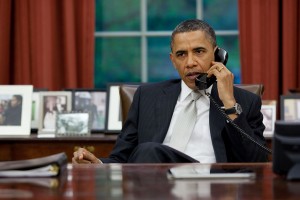‘Where Are You From?’: Thoughts From A Second-Generation American
Aside from the politically-charged debate surrounding President Barack Obama’s decision to reveal his long-form birth certificate this week, the story highlighted something for me on a highly personal level: questioning the “American-ness” of second-generation Americans.
First, a word about me: I’m Iranian-American, born and raised in D.C. and Maryland, respectively. And on the numerous occasions I’ve been asked, “Where are you from?” I give the accurate response to that question: D.C. and Maryland. Rural Maryland, in fact, where bringing cowbells to both football games and high school graduations is the norm, and a common excuse for being late to class is claiming you got stuck behind a tractor on a two-lane road. I can’t think of anything more stereotypically small-town American.
My response is typically met with a blank stare, and perhaps a follow-up of “No, really. Where?” I know the answer I gave is not the one wanted, despite its accuracy.
If President Obama has to prove his “American-ness,” what hope is there for the rest of us? I usually conduct my daily life oblivious to the fact that perhaps some people view me as less American than my white and black brothers and sisters. And the stark rise in hate crimes against people of my ethnicity gives me even more reason to feel anxious.
Asking “Where are you from?” may seem innocent enough, and I have no doubt that the vast majority of the people who ask it of me don’t mean to imply that I’m not American – it’s often asked by people who have nothing but nice things to say about Persian culture. But regardless of its intent, the question reminds me that because of my appearance and “exotic” name, I’m “other.” It assumes that I can’t possibly be from “here.”
I know I’m not alone. One in five children in the U.S. has at least one immigrant parent (three percent of U.S. children have a Middle Eastern parent). In D.C., 19,000 of the city’s 111,000 children were born in the U.S. to immigrant parents. How many of them are asked where they are from?
All of this isn’t to say that I, or other second-generation Americans, aren’t also proud of our heritage and roots. But to be American means living in a multicultural (and increasingly multiracial) society. Does one ethnic group really have more of a right to claim American identity than another? (Notable exception: Native Americans.) I, like all of us, can be both proud to be an American and celebrate my heritage. I take back the cowbell and tractor comment — I can’t think of anything more American than that.
-
http://twitter.com/AFG85 Adam Gurri
-
http://profiles.google.com/leslie.powell Glossolalia Black
-
Akulnishawala
-
island girl in a land w/o sea
-
Anonymous
-
Elizabeth
-
Dawnsmind
-
Juilok
-
Duffs86
-
Meenbeen
-
TM
-
CG
-
Ballroom4eva
-
Sierpien
-
TheGoriWife
-
TheGoriWife
-
Dr Oldskool
-
http://twitter.com/ElaheIzadi Elahe Izadi
-
Simcha
-
J108
-
Ghamilton58
-
unity_for_all






